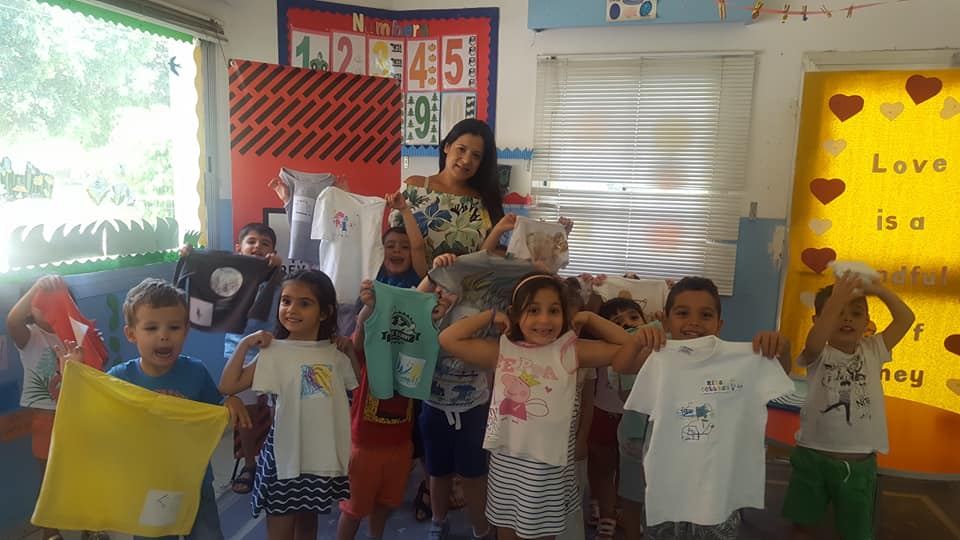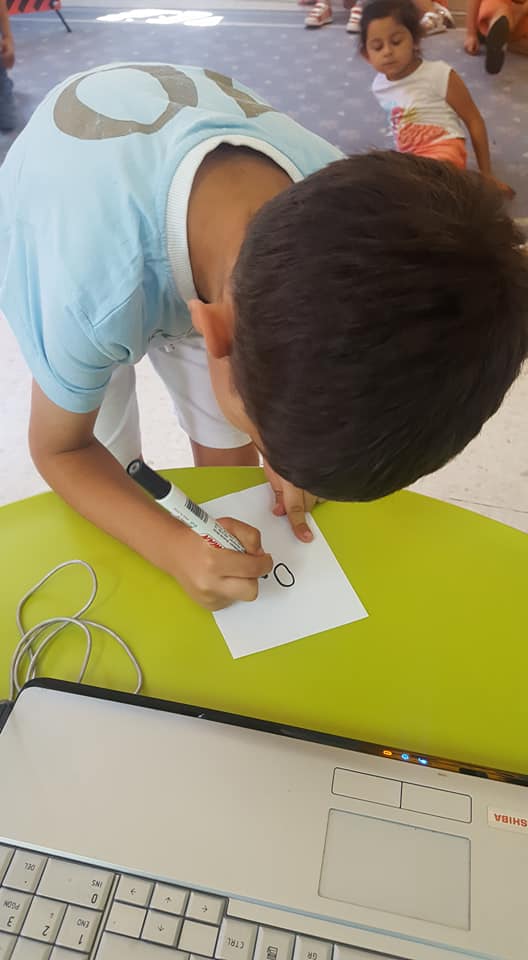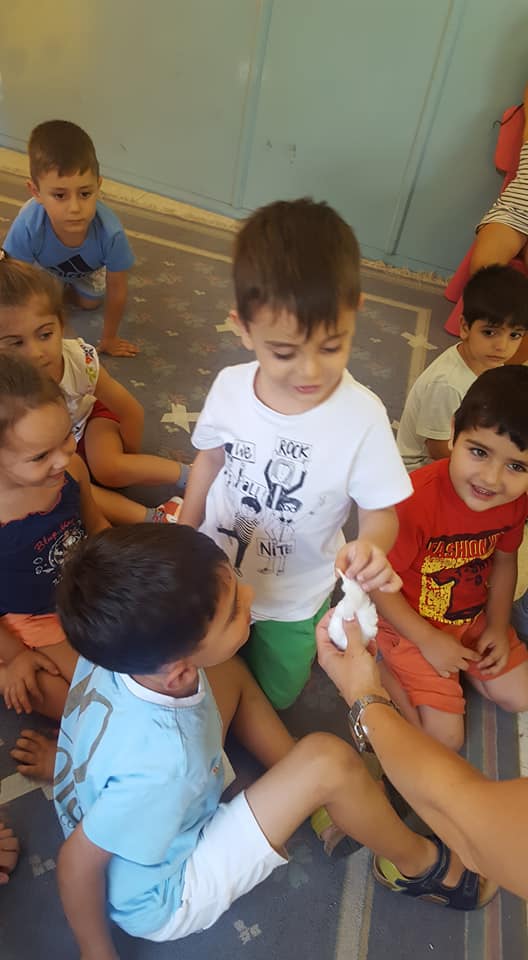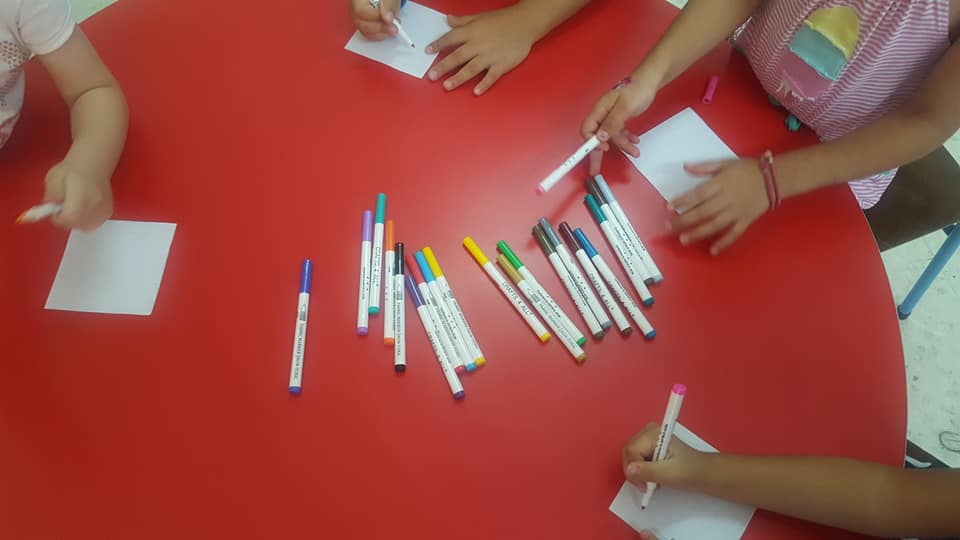Educating the future consumers of the world.
In Fashion Revolution Cyprus, one of our main goals is to invest on educating the students of this country on sustainability and fair trade practices. It is important to train the future consumers of our world, and their beloved ones. We developed an easy to understand, interactive presentation of the way our clothes are made. We started from the farms and concluded to a circular approach in the life of a garment.

A characteristic example is Kid’s College Kindergarten in Limassol. We worked closely with the owner and teacher of the school, Mrs Ourania Theodotou, and arranged a Fashion Revolution Day. We adjusted the programme to the age, backgrounds and interests of the pupils. We also considered the messages she wanted for her students to treasure for a lifetime.
On the previous day, she read to the children a book about Ikbal, a boy from Pakistan, who was forced to work in a carpet factory, chained for days and nights, in order to repay a 10 dollars loan that his parents owed to the owner. They had a really interesting conversation about child labour and the children were furious about it. She also asked them to bring an old t-shirt to school on the following day.
On Fashion Revolution day, we found them well prepared to listen to the exciting journey of our clothes. They watched a step by step presentation of all the stages involved: Farming, ginning, yarning, weaving, dying, designing, cutting, and sewing. At first, they touched a piece of cotton and turned it into a thread. We showed them how our clothes where knitted in the old times and switched to a short video on how nowadays’ fabrics are being weaved. Touching actual fashion designs, with the swatches, helped them understand how it’ s done, and they were thrilled to learn how to make a pattern and cut it.
5 euros t-shirts.
At the end of every stage of the process, we asked them to write on a piece of paper how much they would pay the farmer, the weaver, the tailor, etc. (They were very generous employers). It helped them become aware of the fact that cheap clothes don’t make any sense according to our calculations. Human rights and child labour came up, and we discussed it. They realized how lucky they are to go to school and have friends to play. They felt empathy for the workers and that was really important.
Environment and upcycling.
The final step of our Day was the environmental impact. We dyed a piece of fabric with beetroot juice. This eventually led us to the rivers that are polluted by toxic waste and dyes used to make our clothes. They were shocked by the images. Looking at the landfills full of clothes is not a common image. We agreed that we shouldn’t buy new ones all the time, and we can wear the old ones for many years. The fun part was that they made their own handmade patches, for the holes on their clothes. They used non toxic markers and drew on special fabrics, in order to iron their drawings on their old t-shirts. That’ s the way we “closed the loop”.
Now the Kids College Kindergarten students in Limassol are aware of the process and will be more responsible consumers. Their parents and friends too.
With the help of amazing teachers like Ourania and the free resources of Fashion Revolution’ s website, we will spread the word and raise awareness to all schools and students interested.
It feels good to see young people realizing that it’ s up to all of us to live in a transparent world, where human rights are celebrated and our planet has the chance to breath again. It gives us hope and makesus stronger than ever.








